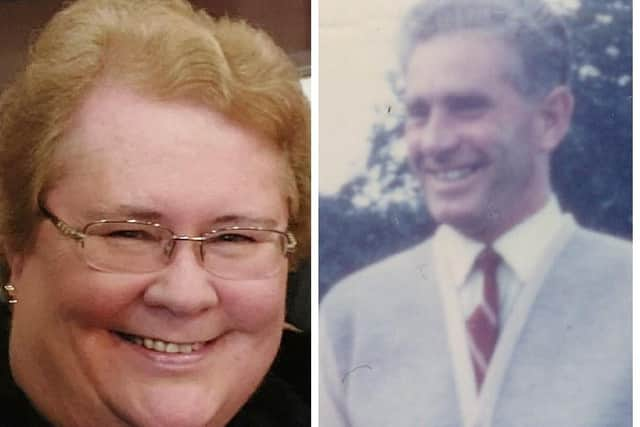Dad was one of nine murdered and 130 injured by IRA on Bloody Friday - why is it not remembered like Bloody Sunday?
and live on Freeview channel 276
Lynda’s father Jackie Gibson (45), was one of nine people murdered on ‘Bloody Friday’ when the Provisional IRA set off 22 bombs across Belfast on 21 July 1972, with some 130 others injured. Six months earlier 13 people were shot dead by soldiers in what became known as Bloody Sunday in Londonderry.
Lynda van Cuylenburg was telling her story at the European Remembrance Day for Victims of Terrorism, held at La Mon Hotel near Comber last night.
Advertisement
Hide AdAdvertisement
Hide AdIn 1972 her family lived in an isolated cottage between Killyleagh and Saintfield and Co Down. Her father Jackie was a bus driver for Ulster bus while her mother Moreen was children’s supervisor at a primary school.


She and four of her five siblings had been at a BB-GB camp in the Isle of Man and were being driven back home when they met their father on his way to deliver his bus back to Belfast.
“We saw daddy coming into Belfast on the bus and he saw us in the car and we waved - and that was the last time we saw him alive.”
“He was lovely, very much a family man. He loved gardening and had a beautiful vegetable patch. I think that was his way of relaxing.”
Advertisement
Hide AdAdvertisement
Hide AdThe family saw the unfolding bombings in Belfast on the television after they got home.
“But when we got home he didn’t come home for ages and everything was getting frantic. I said to mum - he is helping people, that is why he is late.”
Her two uncles came to break the news to the family though her brother Robert, 19, had left the house to try and get an update. When he arrived back, Lynda went out to break the news to him.
“I will never forget the look of shock on his face when I told him. “It was almost like everything was spinning round when I heard the news.”
Advertisement
Hide AdAdvertisement
Hide Ad“My younger brother remembers all the girls in the family screaming when we were told. What do you do? There is panic, shock, everything really. We were horrified. We lived in the middle of the country. Nothing like this had ever happened.”
The next day he was brought home in a sealed coffin.
Jackie was standing in Oxford Street bus station when a car bomb parked in the station exploded - just after he had warned others to stay away from the windows.
“We had a wonderful mother. She was amazing. She was left with five children and brought us up to be respectful to others and to move on with our lives, to forgive and never seek revenge. Because otherwise your lives are ruined as well. We lost everything that day really.
“My children have never known their grandfather. It has gone on down the line.”
Advertisement
Hide AdAdvertisement
Hide AdLynda suffers from panic attacks, “worries about everying” and also suffers from claustrophobia, all of which she traces to her father’s murder.
The reason she is speaking out is because she feels this is their last chance to have the events of Bloody Friday remembered.
“I wrote to the Belfast City Council in February about a commemoration but received no answer.”
However after some lobbying the council is now going to arrange an event.
Advertisement
Hide AdAdvertisement
Hide Ad“It would be nice if they would speak to the families to see what they wanted. I personally think we have been forgotten. Bloody Sunday was the same year and there has been a lot of focus on it - maybe because they spoke out more than us. Our family was so private that we never talked about it, ever.
This is our last chance - we are the last generation who experienced it that can speak out. I would just like people to remember that there are people out there that are still victims of the Troubles from 50 years ago.”
A message from the Editor:
Thank you for reading this story on our website. While I have your attention, I also have an important request to make of you.
With the coronavirus lockdown having a major impact on many of our advertisers - and consequently the revenue we receive - we are more reliant than ever on you taking out a digital subscription.
Advertisement
Hide AdAdvertisement
Hide AdSubscribe to newsletter.co.uk and enjoy unlimited access to the best Northern Ireland and UK news and information online and on our app. With a digital subscription, you can read more than 5 articles, see fewer ads, enjoy faster load times, and get access to exclusive newsletters and content. Visit https://www.newsletter.co.uk/subscriptions now to sign up.
Our journalism costs money and we rely on advertising, print and digital revenues to help to support them. By supporting us, we are able to support you in providing trusted, fact-checked content for this website.
Ben Lowry
Editor